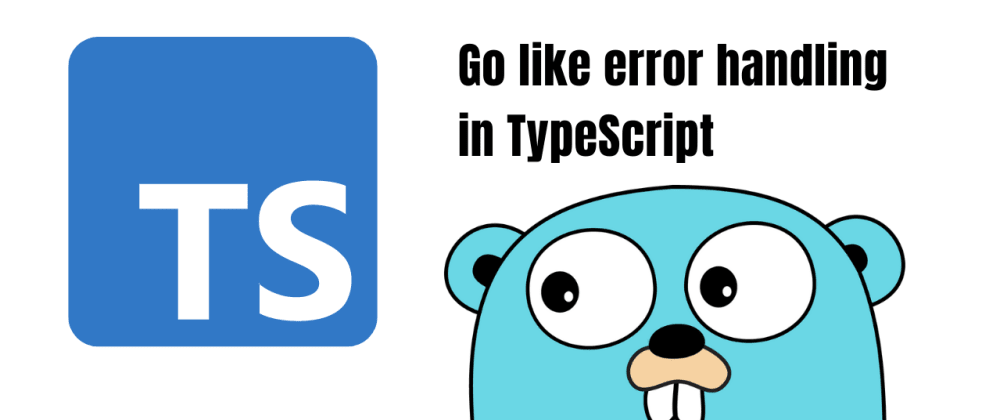- Published on
Go like error handling in TypeScript
3 min read
- Authors
- Name
- Karan Pratap Singh
- @karan_6864

In this article we'll learn about how we can handle our errors like Go with TypeScript.
Note: In TypeScript this is probably not a "best practice", or even a good practice at all but let's have fun experimenting nonetheless!
Let's take the following as an example.
import * as fs from 'fs/promises';
async function main(): Promise<void> {
try {
const result: Buffer = await fs.readFile('./package.json');
// Do something with result
} catch (error) {
// Handle error
}
}
main();
In Go, this should look as below.
package main
import "io/ioutil"
func main() {
data, err := ioutil.ReadFile("./package.json")
if err != nil {
// Handle error
}
// Do something with data
}
Let's write our async handler helper function! This function basically returns a Tuple of result and error as TypeScript doesn't have multiple returns.
type Maybe<T> = T | null;
type AsyncResult = any;
type AsyncError = any;
type AsyncReturn<R, E> = [Maybe<R>, Maybe<E>];
type AsyncFn = Promise<AsyncResult>;
async function async<R = AsyncResult, E = AsyncError>(
fn: AsyncFn,
): Promise<AsyncReturn<R, E>> {
try {
const data: R = await fn;
return [data, null];
} catch (error) {
return [null, error];
}
}
We can use our async utility as below. We can pass our Result and Error generics types.
import * as fs from 'fs/promises';
async function main(): Promise<void> {
const fn: Promise<Buffer> = fs.readFile('./package.json');
const [data, error] = await async<Buffer, NodeJS.ErrnoException>(fn);
if (error) {
// Handle error
}
// Do something with data
}
main();
Perfect! We now have isolated our try/catch with Go like error handling pattern.